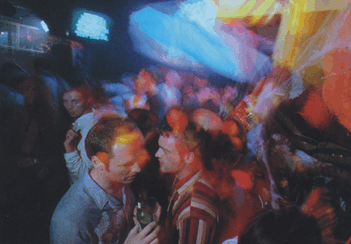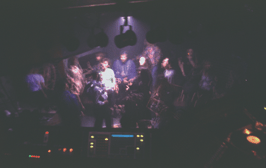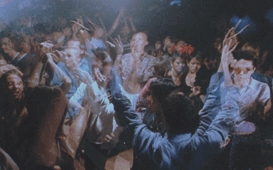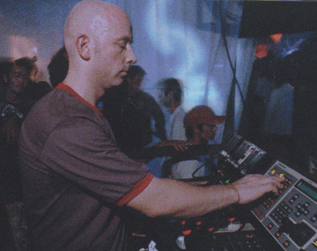| Salon junior Hung Kwok Wai, 18, goes to rave parties as
often as he can, chasing after the music and dance.
Junior secretary Gloria Lai said that going to rave parties makes her feel relaxed.
Cable TV Assistant Channel Manager Elvin Wong Chi-chung said that rave parties started
in the late 1980s in the United Kingdom. “Bands like Happy Mondays and The Stone
Roses were established at that time and created a music scene called Manchester wave. It
led to the prosperity of parties and clubs, and the rise of DJ culture.”
DJs spread the culture by world tours. International DJs like Sasha, Krush and MR.C.
have visited Hong Kong.

According to David Yip, managing director of Absolute Magazine, there are more Chinese
participants in rave parties now compared with the past.
There are at least five big organisers. The most famous ones are One Nation and Space.
Blah Blah Blah also organises regular parties.
Asked whys and wherefores of organising rave parties, Stuart Wason of Blah Blah Blah
said it’s his mission. “I enjoy the party scene and love music. Money is not my
major concern, though it is expensive to organise it (a rave party). Take Boy George as an
example: It costs him $20,000 to $30,000 a night.
“By inviting foreign DJs, we can broaden people’s music horizons.”
Rave parties have developed their own characteristics in Hong Kong.
Said Cable TV’s Elvin Wong: “Unlike in the United Kingdom, the music style
here is not very diversified. New music like Drum’n Bass is not very common.”

Mr. Wason said local rave parties are very fashion-oriented. People come just to show
off their fashions. “In Australia, people dress in a casual way and try to fit in
different kinds of subculture,"
Party-goer Ian Louie, a 29-year-old quality control manager who returned from the
United Kingdom 4 years ago, said that the greatest difference between the UK and Hong Kong
is that rave parties here are legal.
He added that Hong Kong’s rave culture is not well-developed. Here, a rave party
and a disco are not different. “There shouldn’t be any alcohol or drugs; just
water is enough. British people can keep on dancing for 24 hours. It’s a kind of
sport.

“Many people come here just because they want to be trendy. They come here not to
enjoy but just to sit on the sidelines.”
Joel Lai, who has been working as a club DJ for 13 years, said that Hong Kong
“ravers” join rave parties just for fun. “People’s music knowledge is
very poor here.”
Photos Courtesy of Stuart Wason
|



